State School Boards ‘Consider’ Leaving National Association
19 states quit National Association of School Boards after it requested federal policing of board meetings.
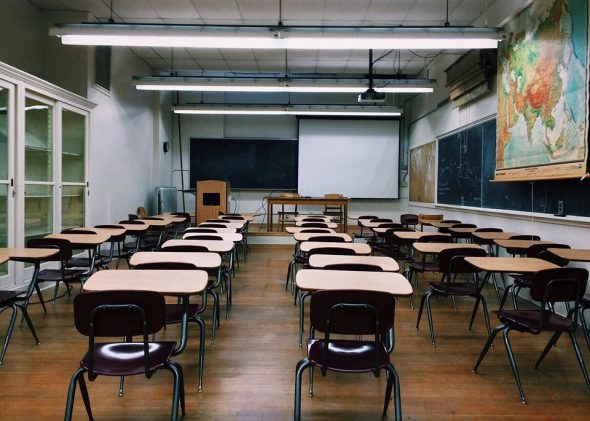
School classroom. (Pixabay License).
On Wednesday, Jan. 19, delegates to the Wisconsin Association of School Boards (WASB) considered leaving the National School Board Association (NSBA). In the end, the delegates decided to leave the decision to its board of directors. In the meantime, WASB will continue its membership with NSBA.
School board associations in 19 states have already left NSBA putting the future of this national association in jeopardy. The actions of those associations directly stem from a Sept. 19 NSBA letter sent to the Biden administration asking for federal law enforcement assistance to quell the violence and threats against school board members across the country. The letter stated that the actions of some protesters “could be the equivalent to a form of domestic terrorism and hate crime.”
WASB also denounced the NSBA letter in a press release with the title, “Citizen engagement is democracy’s bedrock.” On Nov. 9, WASB suspended all involvement in NSBA. WASB could not officially withdraw from NSBA because of a standing resolution requiring NSBA membership. If WASB wanted to leave, it had to replace the existing resolution at its annual delegate assembly. It considered that at the Jan. 19 meeting.
What the resolution said
Before the delegates was a resolution recommended by its board of directors:
“The WASB will maintain a national presence and/or membership in a national association(s) and will participate in and support that national presence and/or membership(s), when compatible with WASB programs and policies. The WASB urges members to actively participate in and support national presence activities and/or national association(s).”
Although many media outlets list Wisconsin as one of the states withdrawing from NSBA, the resolution presented this day only gave the authority to its board to consider such action. In fact, the resolution underscored the need to be actively involved on a national level, even encouraging the involvement in a national association, perhaps even maintaining its membership in NSBA.
Delegates have their say
At 1:30 pm, Jan. 19, over 150 delegates assembled in a ballroom at Milwaukee’s Wisconsin Center. Another 100 delegates participated online, one delegate from each school district in the state. Ten resolutions were presented, but all eyes were on Resolution 8 and the two companion resolutions that gave its board the authority to determine its relationship to NSBA. Delegates spoke from microphones on the floor and remotely by Zoom.
Joanie Beem, a delegate from the Omro school district, questioned the wording of the resolution. “The National School Board Association decided to go rogue… But what’s to say it isn’t going to happen with another national association?” She called for an amendment to change “will” to “may” in the resolution. That meant there would be no requirement to have a national presence or involvement.
Michael Sleeper of Shawno countered, “The ‘will’ needs to be there because we, in Wisconsin, need national representation… We need a national presence; it is not an option.”
Allen Tuchtenhagen from River Falls offered another reason. “I trust [WASB Executive Director] John [Ashley] and the Board of Directors in how this was crafted… Putting ‘may’ in the resolution sends a message of a lack of trust.”
The amendment was quickly shot down.
Brett Hyde, from Muskego-Norway and a member of the WASB board of directors, explained the rationale behind this resolution. “We feel the need to be agile. We are not sure what direction the NSBA is headed… We are not saying we are withdrawing; we are saying we need the agility to have a little more clout, and possibly in the future, withdraw.”
The delegates showed overwhelming support for the resolution: 249 yes, 20 no.
What the vote means
The vote outcome was never in doubt. The stronger message was in the discussion from the delegates. First, the delegates showed overwhelming trust in the WASB leadership. A vote for the resolution was a vote affirming that trust. Second, the delegates recognized the need for a national presence. While some state associations want little to do with the federal government, Wisconsin school boards still look for federal guidance and financial support.
Wisconsin delegates seemed to see the recent letter by NSBA as an unfortunate misstep. Less known to the delegates is that state leadership here and around the country saw NSBA actions as the tip of an iceberg. Below the surface are years of allegations of mismanagement and financial problems. Those concerns are well outlined at state board meetings as well as offhand remarks at national conventions over the years.
If WASB ultimately leaves NSBA, it will join a growing roster of state associations that have done so. While there has been some talk of starting an alternative to NSBA, no alternative exists at this time. On the other hand, Wisconsin might be one of the first state associations to move back from disaffiliation.
NSBA has a lot of work to do to bring state associations back into the fold. Because most state dues are paid to NSBA on a school year basis, the national organization should have enough money to operate until August. After that, all bets are off.
The Milwaukee perspective
Unlike the rest of the state, Milwaukee Public Schools (MPS) has a national lobbying alternative, the Council of Great City Schools (CGCS). In order for a district to be a member, it must have a community population of 250,000 and 35,000 students. Only Milwaukee meets those qualifications in Wisconsin. Madison does have a population of 270,000 within its borders, but misses the mark on students with only 25,000. CGCS has 75 districts and continues to add new members.
“We have a strong relationship with the Council of Great City Schools,” says Chris Thiel, MPS legislative policy manager. But he quickly adds, “It is important to have the National School Board Association as a strong partner fighting on behalf of public schools.”
If NSBA is weakened, urban school districts may be more likely to turn to the CGCS for federal lobbying efforts. But the entirety of lobbying will be diminished. As a MPS employee, Theil heard support for NSBA from WASB suburban and retired school board members when he attended the education convention. That support was confirmed as he watched the WASB delegate assembly discussion.
“It makes more sense to have more entities” says Thiel who works on legislative issues common to MPS, WASB, the state teachers’ union (WEAC), parent organizations, and any other groups supporting educational issues.
Using almost the same words as Thiel, MPS School Superintendent Keith Posley says “The more people we have advocating on behalf of students, the better off we are, whether it’s the National School Board Association, whether it is the Council of Great City Schools.”
Advocating for public education
On Jan. 23-25. NSBA holds its annual Advocacy Institute in Washington, DC.
Wisconsin delegates met directly with U.S. Senators Tammy Baldwin and Ron Johnson in previous years. It was a measure of the national organization’s clout that the senators themselves met with delegates instead of leaving the meeting to their staff.
But this year NSBA is weakened and may struggle to present a unified message to elected officials.
One delegate to the Wisconsin delegate assembly raised the question if it even makes sense to have unity just for the sake of unity. Said Allen Tuchtenhagen of River Falls, “The only thing worse than having no representation is to have representation that doesn’t represent us.”
Still, Thiel is concerned. “If you are going to fracture into individual states, your power is diminished.”
Wisconsin school boards ‘consider’ leaving national association was originally published by Wisconsin Examiner.


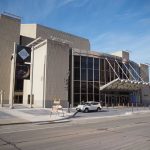
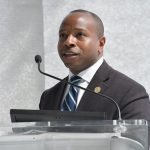

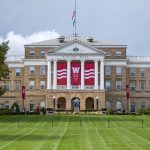


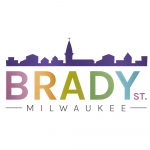













With school board meetings being regularly disrupted by a vocal, belligerent minority and harassment and threats of violence to school board members, I am surprised that the WASB Board is concerned that their national group asked the Federal Government to look at this issue. Does WASB think that disruption and threat of violence are to become normalize as a perverted concept of “free speech?